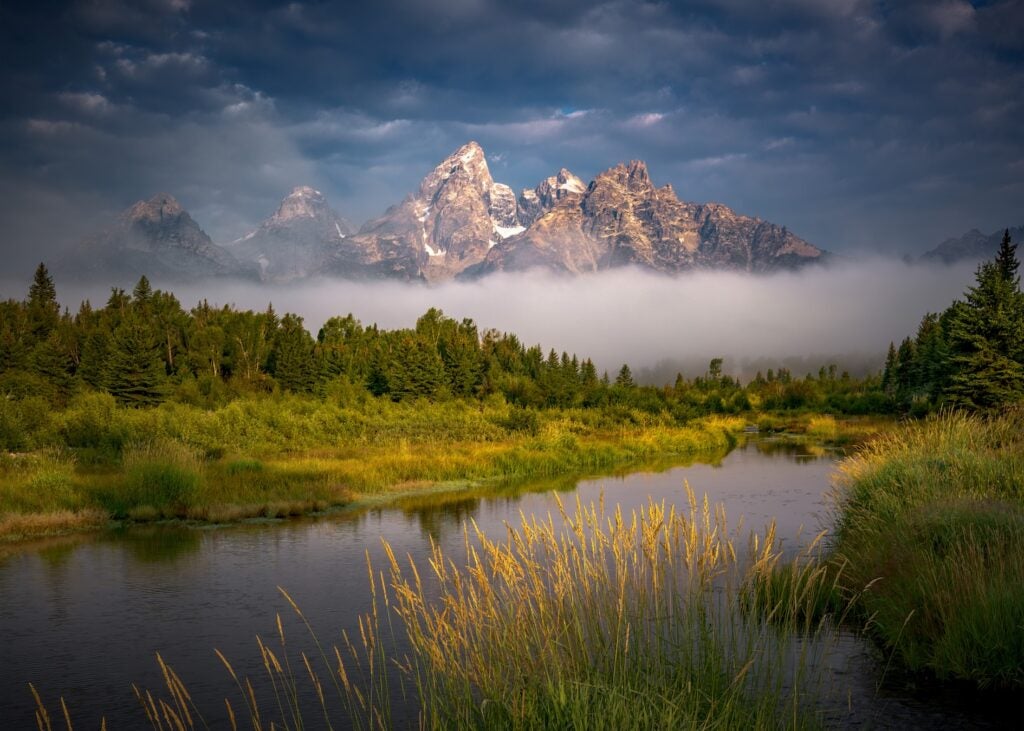Officials with the Wyoming Department of Health are searching for hundreds of tourists who may have been infected with rabies, after a hotel in Grand Teton National Park was revealed to house a bat colony, according to a press release from the National Park Service.
Officials said the Jackson Lake Lodge had a bat infestation in an attic that was located above multiple hotel rooms. From May 5 to July 27, at least eight bat encounters were reported by hotel guests. The affected rooms—516, 518, 520, 522, 524, 526, 528 and 530—were closed as a result.
Dr. Travis Riddell, director of Teton County’s Public Health Department, told Wyoming Public Radio that “although there were a lot of people exposed in this incident, the one positive about it is that we know who 100 percent of those people are. People in the community, in general, don’t need to be concerned about this particular incident.” Riddell and his staff are now in the process of tracking down over 200 hotel guests and staff, with a particular concern for guests who slept in the rooms and therefore are more at risk for rabies infection.
Tracking down the guests is easier said than done. According to authorities, they hail from 38 U.S. states and seven different countries.
According to the NPS release, exposure to rabies can come from both “a bite or a scratch from a bat to a human” and any “saliva contact from a bat to a human’s open cut or mucus membrane.” However, their [bat] bites are small, often hard to see, and typically do not bleed or cause pain.
“A person may not realize that an exposure has occurred or may not think a bite or scratch requires medical attention,” the release stated.
Because of this, the release notes that, “a person who cannot confirm or communicate a potential exposure—like a child, a deep sleeper, or someone who is mentally impaired or on mind-altering drugs—might be considered at-risk.” The agency also warns that saliva contact from a bat to a human’s mucus membrane or other physical contact with a bat can be considered a risk for rabies exposure.
However, State Health Officer Alexia Harrist said to Wyoming Public Radio that although everyone who stayed in one of the affected rooms should reach out to health officials, not all will need to undergo the standard preventive vaccinations.
“In general, if people didn’t see a bat in the room, it’s extremely unlikely that they have any risk for rabies,” Harrist said.
Riddell agreed, telling Wyoming Public Radio that, “The chances of even one of [the bats] having rabies or having been exposed to rabies is low… but to me, the death of one person because of something that we could have otherwise prevented is not acceptable.”
According to the CDC, “the first symptoms of rabies may be like the flu, including weakness or discomfort, fever, or headache. There also may be discomfort, prickling, or an itching sensation at the site of the bite.” Severe symptoms start to appear within two weeks of initial onset and can include anxiety, confusion, agitation, and hallucinations. At this point, other hallmark rabies signs begin to appear, such as “being very thirsty but panicked by fluids, having lots of saliva, and aggressive behavior like thrashing and biting.” By this time, the disease is generally fatal.
Although all warm-blooded species can become infected with the rabies virus, it is most often transmitted to humans by animal hosts. Bats are the most common host, along with skunks, raccoons, and foxes. Less than ten rabies deaths are reported in the U.S. each year, and roughly 70 percent of these human rabies deaths come from bat infections, reports the CDC.
Rabies vaccines given after exposure, known as post-exposure prophylaxis, involve a series of four to five shots over two weeks following potential infection, along with a dose of human rabies immune globulin (HRIG). While effective if given promptly, the treatment can be costly. A recent analysis from BetterCare, a website that tracks healthcare costs, states that post-exposure rabies vaccines can cost between $2,500 and $7,000. Some individuals—particularly those being treated at smaller, regional hospitals—report far higher fees of $10,000 or more.
If you stayed at the Jackson Lake Lodge during the affected time and were in one of the eight rooms listed above, NPS recommends contacting Grand Teton Lodge Company.


